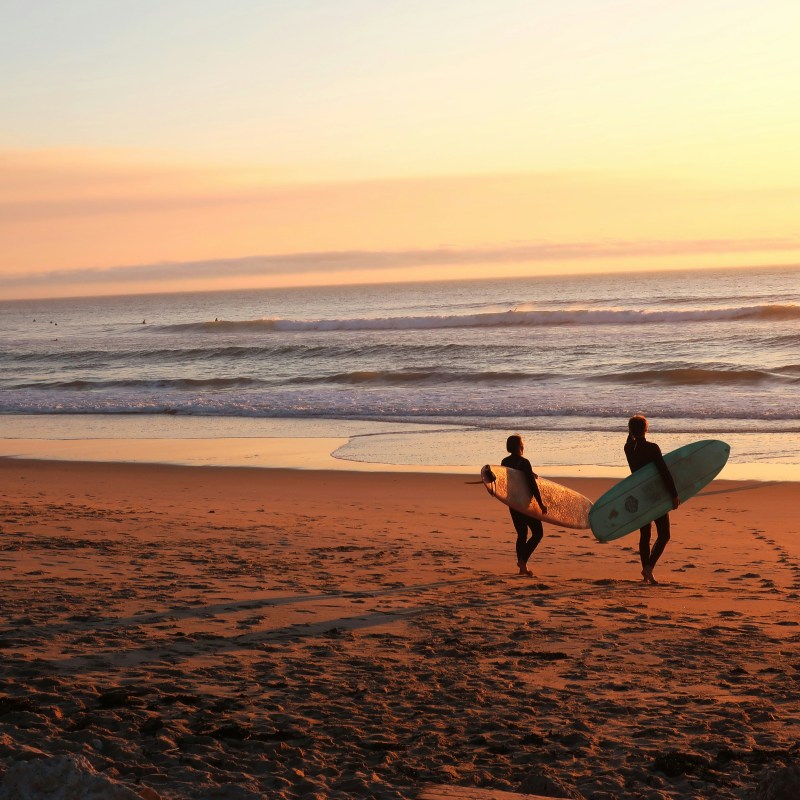
Tourism trends come in waves. Around 15 years ago, Americans were being pelted with ads from Iceland. Thanks to a newly launched WOW Airlines, flights to Reykjavik were more accessible than ever before.
Videos by TravelAwaits
Tour groups took advantage, selling visitors all types of new experiences. Northern lights? Hell yeah. Blue-tinted hot springs? It’s on the bucket list.
Since then, Iceland has become a steady option for tourists from the US. But you may have noticed a slew of new contenders. Bali is one of the biggest, along with trending Riviera Maya destinations like Tulum.
And, of course, Portugal.
Thanks to a media blitz from Portugal’s tourism authority, VisitPortugal, it’s become one of Europe’s premier vacation destinations. In fact, it might be the continent’s new crown jewel in terms of tourism.
In the first quarter of 2023, the nation welcomed around three million visitors. Tourism isn’t just big business; it’s one of the country’s most profitable economic sectors. So what does this mean for visitors? Does it matter at all?
In many ways, it does. To put it simply, the more worn tourist tracks are, the harder they are to escape. But I’ve got a few Portugal travel suggestions from a Lisbon native to help you see the country in a new light.
Big business, big questions
As a resident of one of Europe’s most tourist-happy cities who lives in its most densely traveled neighborhood (El Born, Barcelona), I can tell you firsthand: mass tourism leads to tension.
Tourist dollars are undeniably good for the economy—but locals in many tourist hotspots still want a good quality of life. They probably don’t want their hometown hawked as a day trip and their streets clogged with meandering visitors.
This tension can be frustrating for everyone involved—even very well-intentioned tourists.
And if you’re going to Portugal, you’ll notice a massive number of tourists in just about every major city.
To better understand Portugal and what tourism means to the Portuguese, I spoke with my friend and Lisbon native, Carolina Torneiro. She’s got two suggestions that appeal to both visitors and the Portuguese: surfing and camping.
If you’re heading to Portugal, why not enjoy the country like a Portuguese person would? After all, when in doubt, do as the locals do.
Surfing in Portugal
A fun fact that Carolina shared with me: Portugal is home to the largest wave ever surfed. In fact, in terms of European surfing capitals, there’s no place quite as important as Portugal. (Aside from France, maybe.)
She suggests soaking up surfing culture in hotspots like Nazaré, Ericeira, Praia Grande, and Guincho. If you’re hopping around the coast, you may want to look into surfing competitions and surfing courses in these areas.
For beginners, stick to surf schools in Nazaré or Costa da Caparica, which is just outside Lisbon.
Nazaré, in particular, offers a variety of surf experiences for newcomers. This is the best place to start off on your Portugal surfing journey. But even if it’s not your thing, you’ll quickly notice that there are plenty of pros to watch.
As the world’s ‘big wave capital’, you won’t be bored watching from the beach.

Camping & road tripping in Portugal
If hanging out in surf towns is your thing, then camping might not be a far stretch.
Along with getting to know Portugal’s surfier sites, Carolina recommends camping. Not only are there beautiful coasts and parks dotting the country, but renting campers is also easy.
She recommends the brand IndieCamper. I’ve rented from this company in the past when attending a festival in Portugal. There are more luxurious options if that’s your thing.
Just make sure to rent a smaller vehicle that will let you navigate narrow coastal roads—unlike Europeans, most Americans get spooked when the roads get narrow. (It’s me—I get spooked.)
Lastly, Carolina recommends checking out the country’s southwestern Alentejo Coast and Costa Vicentina. They’re easy to get to if you’ll be renting a car in Lisbon or Faro. From either city, you can drive down the coast at your own pace, stopping in parks between sleepy little coastal towns.
Portugal: Touching base with tourism
Hopefully, these Portugal travel suggestions have incited your curiosity. While counting the tiles of Porto or wandering the estates of Sintra are classic activities for visitors, there’s a lot more to Portugal than what’s on offer from tour companies.
And despite the fact that tourism has sparked a huge conversation about Portugal’s identity, I have to say that Portuguese people are some of the kindest hosts I’ve ever met. From Porto to Lisbon to Idanha-a-Nova, I felt welcome.
But I have to admit that, without Carolina’s suggestions, I never would have thought about surfing in Portugal. Not only did this open my eyes to a new experience, but I also learned a bit more about the country’s surprisingly longstanding relationship with the sport.
